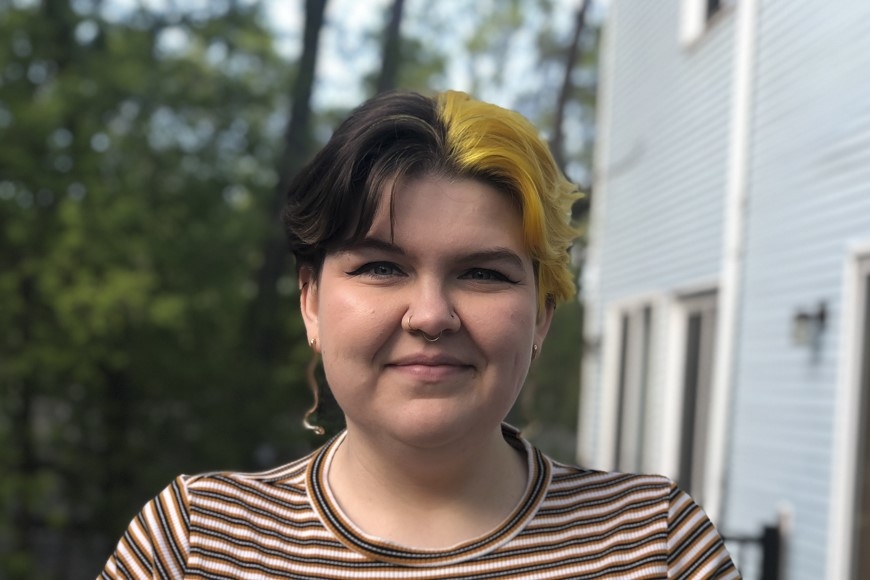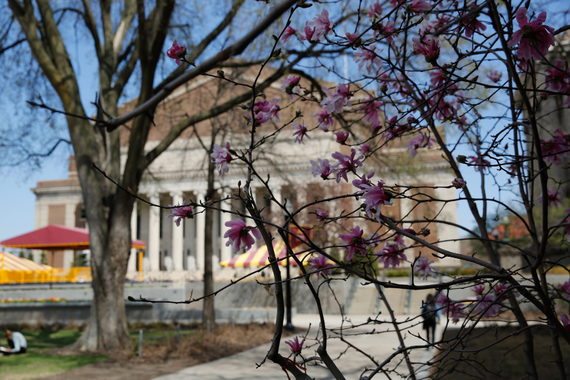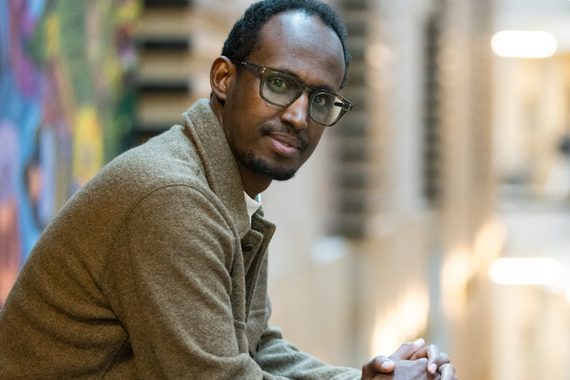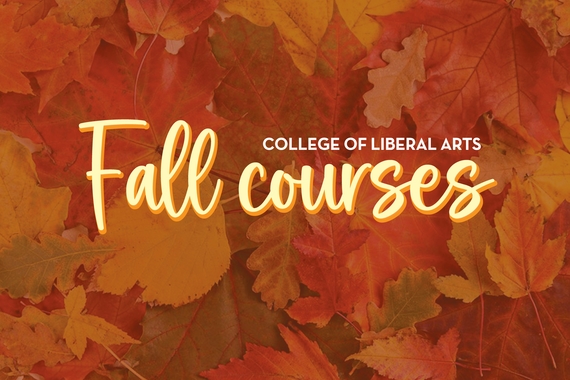Q&A with Lauren Foley (BA '21)
What did you study and why did you choose your majors and minor?
I'm majoring in English and Spanish studies with a minor in creative writing. English was always the natural choice of a major for me. I came into college wanting to go into editorial work, but even long before that, I always loved storytelling and language, and my parents started calling me their "little English major" as early as middle school because I was so in love with the discipline.
But Spanish studies did take me by surprise! I initially decided to minor after having a really lovely experience in my third- and fourth-level intro courses. Then, by the time I started really getting into upper-level Spanish sociolinguistics courses and, eventually, planning a semester abroad, I knew I wouldn't be ready to let go of my studies after returning to my home campus and swapped to a major before going abroad. It helped, too, that I only had a few courses left for the major upon my return.
What course would you recommend for other students in your major?
For English, I'd recommend the children's literature course. It's really fun, yes—that particular reputation it has is accurate. But I think a lot of us, myself included, tend to pass over how important children's lit is—to the kids reading it and their perception of the world and themselves, to school reading lists, to public libraries. I learned so much about literature and thematic communication in that course in a completely different light than I did in others.
For Spanish studies, I'd recommend the Spanish in the US sociolinguistics course. It teaches a lot of interesting technical details about language acquisition, language programs in schools, language loss, etc., but it also offers a foundational understanding of code-switching and dialect bias...I could literally go on forever, but the short version is that it's an excellent course and fundamentally affected how I think about language and dialects, both in the US and elsewhere.
Which CLA class or professor has had the biggest impact on you?
Am I allowed to pick two?
Experientially, the Tower production course with Jim Cihlar was one of my most foundational experiences. It taught me so much about editorial and specifically editorial in the publishing industry, and it also allowed me to put hands on the kind of work I'd done and loved through my high school literary magazine in a new, richer way.
I still keep up with the course advisor and with several folks from my professional network from that course, and so between the career development and the hands-on learning and just how fun it was, it had a huge impact on my studies and my professional direction. (As, additionally, did Cihlar's mentorship!)
Thematically, I also want to nod to Literacy and American Cultural Diversity with Eric Daigre. Not only was it a community-engaged service learning course (CESL), so we got to spend time out in the community applying the concepts we discussed in the classroom, but it also offered a really important and foundational knowledge base of the history of literacy in the US and how it plays across cultural diversities and what that means for modern literacy and programming, particularly in the community-serving and educational spheres. So interesting, yes, but also so relevant, especially for those interested in education, literacy, or just language spread and use in general. (And, similar to above, Daigre was/is a phenomenal instructor and made the course that much more engaging.)
What advice will you give to freshmen looking to explore your major?
Take a fun class first! Don't get me wrong, I enjoyed my foundational courses, too, but the more "fun" courses—that is, the ones with really niche or even nontraditional topics or the ones that are cross-departmental or the ones with CESL/other non-class activity options—will give you a good feel of what can come out of the major beyond the fundamental skill set.
What is one aspect of your major that has surprised you? What do you wish more people understood about what you study?
Okay, so this didn't surprise me, per se, but what I wish people understood about English as a discipline—and, frankly, Spanish studies, too, to an extent—is that we're not just writers, editors, or teachers. Don't get me wrong! I am, admittedly, going into editing, and all of the careers I listed are important and interesting, and we could get into a separate discussion about why they're perceived otherwise in some contexts. But what's also important is that English isn't a corn-holed field.
Since the foundational skills are written and verbal communication and analysis and critical thinking, it can kind of take you anywhere. Not to toot my department's horn, but it's honestly rad how many different fields English majors go into.
What would you say has been your greatest achievement in college?
Honestly, I think my greatest personal achievement has simply been curating the experience I wanted to have. I've been all over the board activity-wise in college—a handful of internships and career experiences, learning abroad, CESL courses, student groups.
When people ask me why I've done so many things, part of my answer is that I like to keep busy, but the bigger part is that I'm just interested in lots of things. When I came into college, I knew I didn't want to limit myself to what I thought was my only, or at least best, career option, so instead I worked to explore that option and all my other interests and passions.
So in the end, my greatest achievement is that I did that—I made my college experience diverse and eclectic and fun, and I think all my fondest memories will be in the growth moments (and, cliche as it, friendships) that came out of it all along the way.



